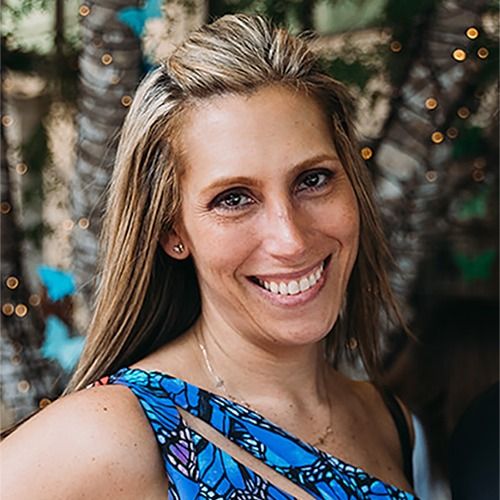Episode 3
Episode 3: Empowering Women Through Family Law – A Conversation with Heather Quick
Empowering Women Through Family Law: A Conversation with Heather Quick
In this episode of 'Grey Minds Think Alike,' host Ali Kessler interviews attorney Heather Quick, founder and CEO of the Florida Law Firm Women's Law Group. They discuss the unique challenges faced by women during divorce and family law proceedings, the importance of laws like Greyson's Law, and the necessity of specialized training for judges handling cases of domestic abuse and coercive control. Heather emphasizes the significance of legal representation that truly understands and advocates for women, recounting various cases and common patterns of power imbalance in relationships. Additionally, the conversation explores the complexities of custody battles, the potential difficulties in divorce proceedings, and resources available for women seeking help.
Chapters:
- Introduction and Guest Welcome
- Impact of Greyson's Law
- Challenges Women Face in Divorce
- Addressing Domestic Violence and Coercive Control
- Legal Strategies and Support Systems
- Difficulties in Co-Parenting
- Trends and Challenges in Divorce Without Children
- Resources and Final Thoughts
About Heather Quick:
Heather B Quick is the founder and CEO of Florida Women’s Law Group. She holds a Bachelor of Science in Nursing from the University of North Florida (1998) and a Juris Doctorate from Stetson University College of Law (2000). Before starting Florida Women's Law Group, Heather was an Associate Professor at Embry-Riddle Aeronautical University and an Adjunct Professor at Florida Coastal School of Law. With 24 years of legal experience, including 19 years specializing in family law, Heather is a current member of the Florida Bar Association, Jacksonville Bar Association, and Jacksonville Women Lawyers Association.
Contact:
About Ali Kessler
Ali Kessler is a writer, marketing professional, passionate parent advocate, and founder of Greyson’s Choice, a 501(c)(3) created to raise awareness about the risk of domestic abuse on children. Greyson’s Choice was founded by Ali Kessler in memory of her sweet, vibrant, and fearless 4.5-year-old son, Greyson, who was murdered by his biological father in a murder-suicide during an unsupervised, court-approved visit in Ft. Lauderdale, FL, in 2021. This came just hours after her petition for a domestic violence injunction was denied by a Broward County judge, citing that the “petitioner has failed to allege any overt acts by the respondent which would constitute domestic violence under Florida Statute.”
Ali’s advocacy efforts culminated in successfully passing Greyson’s Law during the 2023 legislative session. This bill now requires the court to consider threats against ex-partners or spouses when making child visitation and custody determinations in the court, expanding to include the following factors: evidence of domestic violence, whether a parent in the past or currently has reasonable cause to believe that they or a minor child is, or has been in imminent danger of becoming the victim of domestic/sexual violence by the other parent, even if no other legal action has been brought or is currently pending in court.
Contact Ali:
Subscribe, donate, listen, learn.
Transcript
Now you have a “For women's” law group. I’m just curious. Why do you feel that it's so important to cater to women specifically?
Heather: [:We hear when we're like, "That sounds like a dangerous situation. That sounds not normal. You need to leave.” We also need to hear, you know, their side of things and really advocate for them when they are sometimes unable to advocate for themselves. They don't feel strong enough. And that women can be heard.
Ali: [: Heather: [:I haven't done anything. He makes all the money, none of its mine. What do I do? And also, being stuck? I hate the idea of any woman feeling stuck in a relationship and that they can't get free because I believe that that's just falling in. And so, obviously, you know, ideally, start before you're in a relationship empowering young girls, young women to, you know, all this education, all this work you've done for your career. Please, don't give that up please don't give up your independence. Even if you are a mother, you can still have independence and that gives you the freedom and actually will shouldn't make for a better relationship.
Ali: [: Heather: [:And for any women who don't, it's like, well, obviously safety is the number one thing, but we can't certainly make anybody do anything, but we can educate them and help them understand what's available. Yeah. And then, to begin thinking, okay, well, you know, where are your support systems, and how can you maybe create some? We do definitely have domestic violence shelters, but also, they have a lot of counseling.
They do have support. I know it's not ideal, but it's a wonderful place to start to Begin, maybe getting that counseling that can help you rebuild some of that self-esteem, understand maybe where you can have some control over those.
Ali: [: Heather: [:And it is important when we draft the injunction, which often we do now, of course, it's available to anyone to go to the courthouse to the injunction, and they assist you and they're good at that, right? But it's really important that the right information is conveyed because the judge at initial look, as you know, is going to read this.
And it's very important that what is written is able to exhibit and relay the picture of what is happening and what is truly going on and that's difficult and it's, but it's important. And so, we do that for our clients very often when we are able to. You know, put enough down on the paper and it obviously got to be accurate. I'm not suggesting that it wouldn't be or that we would ever try to exaggerate or stretch anything at all. But it is a, it's a story, it's a true story, but it needs to read so that the judge can read that and say that sounds dangerous. I'm going to grant this temporarily in order to allow everybody to come to a hearing and of course, not every temporary injunction ends up being a full injunction, but it is so key that you're able to transfer that information, the true facts of what has occurred, to the court and in that's where, you know, we as lawyers, you know, we know how to present something to a court that fully shows it.
That you are truly in fear of your life or for your child based on actions that have happened and so that sometimes We really have to elicit a no, because sometimes it's not, because the judges read that, and I do believe that the courts are getting better I do, over, you know, the 24 years I've been practicing I do see that, but you have to be able to effectively communicate that in writing, and that can be difficult.
Because as somebody going through the syncope, it is, there's rarely physical evidence. There's, especially if it's verbal, and there's not always the voicemails or the text messages or anybody else around. That's what makes it so insidious because it's just, But you know if you're in fear, and so that's part of what, we try to Get communicated at least on a temporary basis because if you don't get it granted on a temporary basis Then you still can have a hearing And it does depend on obviously some judges are Unfortunately, shouldn't be on the bench and in areas, but that's for another day.
Ali: [: Heather: [: Ali: [: Heather: [: Ali: [: Heather: [:Like I said in the beginning, the laws that we have are the laws that we have, and you want to, if they work you know, it can definitely, certainly serve hopefully to protect that is the idea.
Ali: [: Heather: [: Ali: [: Heather: [: Ali: [: Heather: [: Ali: [: Heather: [:When we do, we have to effectively present that evidence. Unfortunately, the judges are like, get over it, right? You had a child with this person, get over it and figure it out. Or go to some now sometimes, a parenting coordinator can be very effective. And it can give you a buffer from the communication, you know, you come up with ways that can insulate the parent. And then I have not seen this effectively used in Florida, but I know it's a little bit more popular out West, and that is the parallel parent. And that, that can work there is a lot of research on it, and
Ali: [:Heather: [00:23:20] It tends to work when, say, I'm just going to use the 50-50 because when the child is with you, you parent the way you want, which really people do, and you follow whatever schedule you want to follow and things. And then when the parent, the child is with the other parent, they do that as well. But they don't have to consult one another. on I'm going to take them to the doctor. I want to take them to this person. Like, you can do what you want on your time, and you can take them to the doctor as long as there's nothing harmful going on.
And that tends to work really well. I do see; it can get really another way. I've seen men control the mothers in medical care in that option, like where now you have to do all these things. You can call the doctor, and you are welcome to communicate and get the exact same information.
And they, the fathers force the mother to be this conduit, like just, they're always dragging them in. They always want to pull them into a communication. And so that's where the parallel parenting, in theory, is supposed to help. I have not seen it in practice work. I do understand the theory, and I think
Ali: [: Heather: [: Ali: [: Heather: [: Ali: [: Heather: [:Every other week and then, add a little bit extra to the weekend. But I think that it has to be what's in the best interest. Of the children, and you need to look at what that is, and you know I am truly biased, right? I'm a mom. I'm a woman. I mean, when the majority of women, unless they actually do have psychological problems, they are natural caregivers, and they should be. And, you know, many years ago, even before I, I think before I began practicing or very shortly there under, they took away that. You know, tender years doctrine that's like when you're, yeah, when you have the baby that should be with the mother. I mean, that's it. Yeah, That's not asinine. I don't know if a lot of it is on here, but like it is, it doesn't follow with any of the psychology or in any of the studies.
Ali: [: Heather: [:Ali: [00:29:17] Of course. No, of course. But. But those people would have been at the birth and would have been on the birth certificate. Yes. And would have exercised their rights from day one.
Heather: [: Ali: [:Heather: [00:30:09] But that's what they said, and that was his line. And that was the story. And I think that the courts are more apt to believe that women are crazy and that we are overprotective and all the negative things about us rather than all the positive things. I think that…
Ali: [: Heather: [:I do. I think there's still a long way to go, and we have to be diligent. It's really hard to stand up for yourself when you're in that position. It's really hard. I do find when women feel like okay, and they, we fool ourselves, right? They, you know, that's a coping mechanism to be like, the kids don't know it's just me. It's like, no, they do. They do. They're going to that; they're going to be that person. They're either going to be the perpetrator or the victim. The longer you let them stay in that situation. And so, it's just education there. And, the willingness to really just help support these women in these situations and to help them see I, there, I can, it may be difficult, maybe really difficult for you to get out of that situation. But it's most likely going to be worth it and to look at, well, where are my resources and support system to help me do this effectively.
Ali: [: Heather: [: Ali: [: Heather: [:You have to be willing to at least entrust in the attorney that you have to get it in front of the judge to get closure and completion.
Ali: [: Heather: [: Ali: [: Heather: [:Ali: [: Heather: [: Ali: [: Heather: [: Ali: [: Heather: [: Ali: [: Heather: [: Ali: [: Heather: [: Ali: [:
About Heather Quick:
University of North Florida (:Contact:
Website
About Ali Kessler
sit in Ft. Lauderdale, FL, in: ng Greyson’s Law during the:Subscribe, donate, listen, learn.



